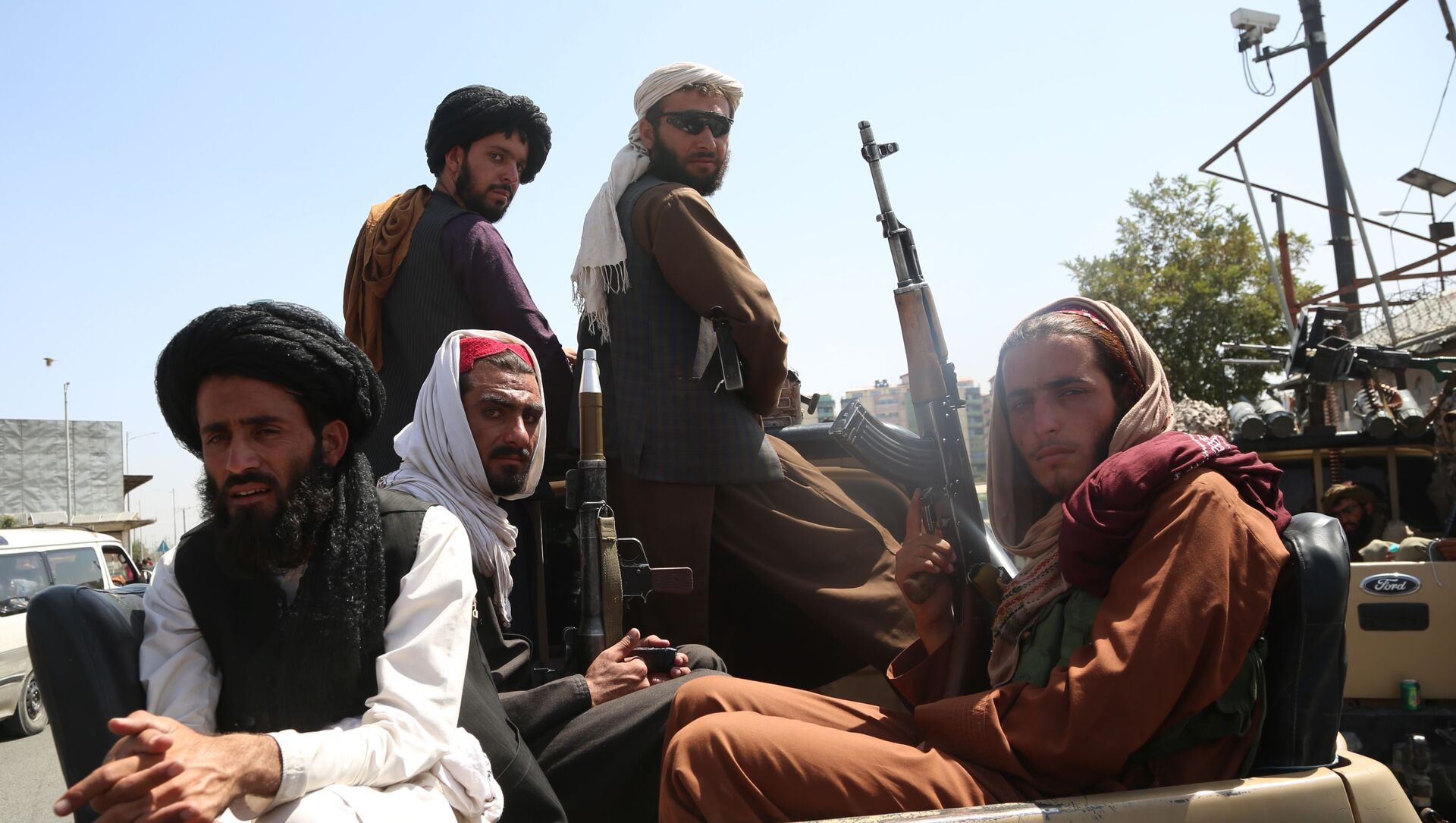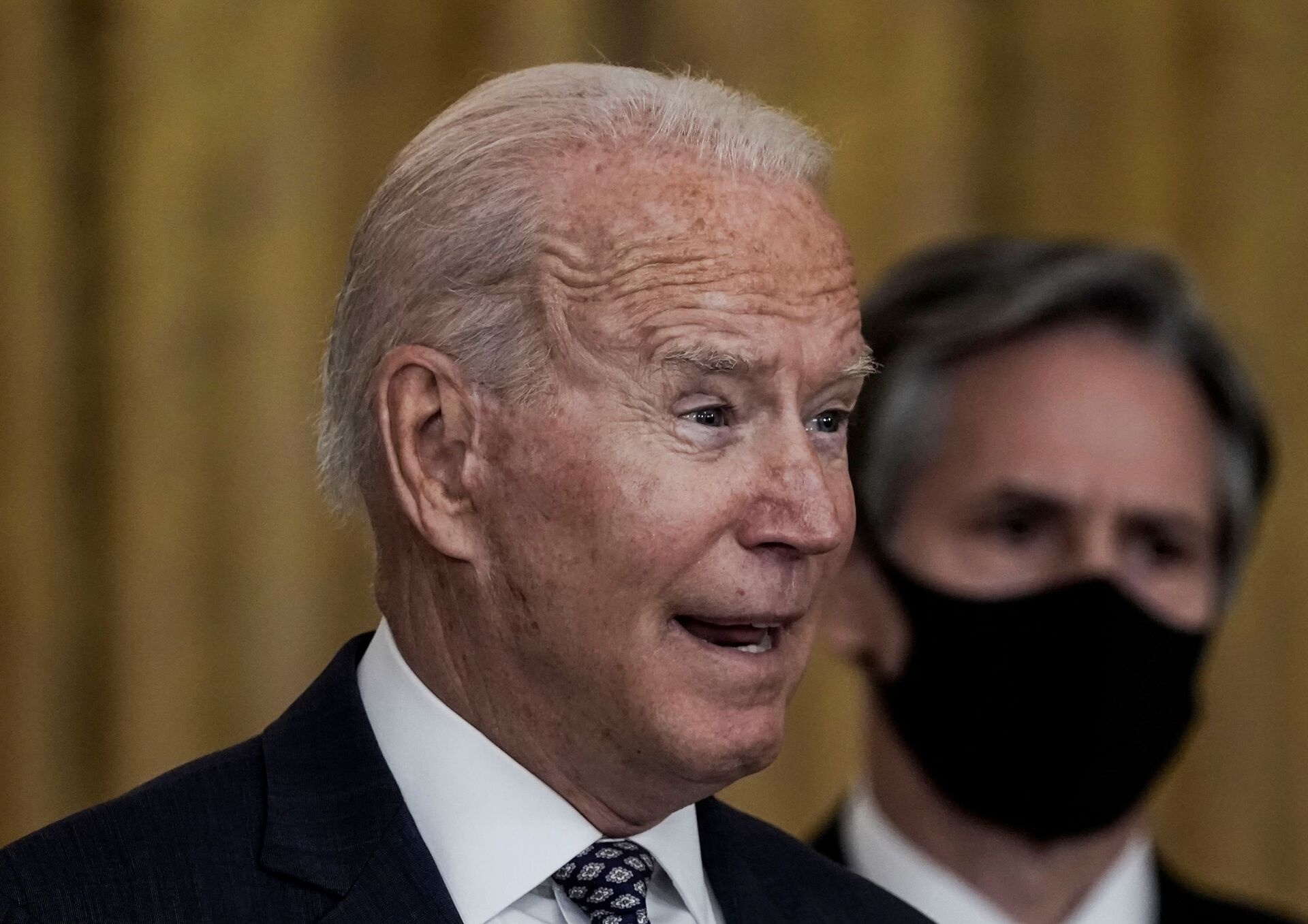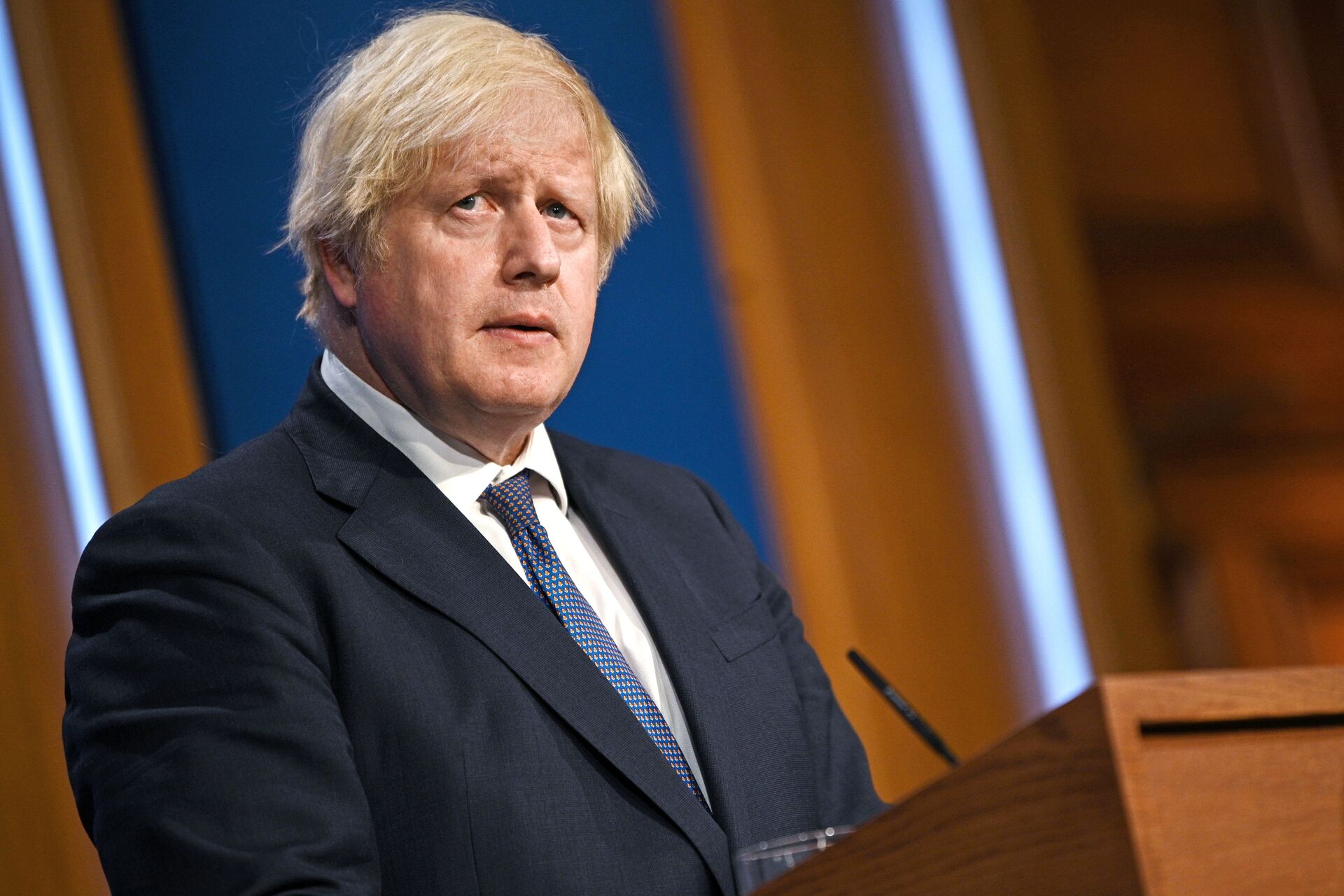Emergency G7 Talks: Will Biden Risk New Standoff With Taliban by Extending Evacuation Timetable?
14:00 GMT 23.08.2021 (Updated: 13:22 GMT 06.08.2022)

© Sputnik / Stringer
/ Subscribe
The UK and EU countries are likely to extend further pressure on US President Joe Biden to persuade him into postponing the withdrawal of American troops from the country until all foreign citizens and NATO's Afghan assistants are pulled out, according to observers. However, this decision is not without serious risks, they say.
On 24 August, UK Prime Minister Boris Johnson, as chair of the G7 is due to host the group's emergency meeting on Afghanistan. According to the Financial Times, the parties are likely to discuss a potential extension of the US evacuation timetable as well as arrangements for getting western nationals and Afghan citizens out the country.
The newspaper notes that the British PM also wants to focus on "a longer-term approach to the Afghan crisis but accepts, following the US retreat, that China and Russia are now key players in the region".
EU Expresses Discontent With Biden's Pullout
Earlier, European officials subjected the Biden administration's hurried withdrawal from Afghanistan to tough criticism. In particular, Norbert Röttgen, chairman of the German Parliament's Foreign Relations Committee, called it "a serious and far-reaching miscalculation" that "does fundamental damage to the political and moral credibility of the West". For his part, High Representative of the EU for Foreign Affairs and Security Policy Josep Borrell qualified the resurgence of the Taliban* as "a catastrophe" and "nightmare".
In addition, Borrell expressed bewilderment over Joe Biden's 19 August claim that the US intervention in Afghanistan had never been about nation-building. According to the EU foreign policy chief, the US president's statement is not only arguable but also "raises many questions about the West's 20-year engagement in the country and what we were able to achieve".
"There is a visible moral panic that has gripped parts of the western political establishment", says Dr Amalendu Misra, a senior lecturer in politics, philosophy, and religion at Lancaster University in the UK. "Many of the G7 leaders feel the Biden administration's hasty retreat from an increasingly volatile Afghanistan was an 'immature policy decision' that put the western citizens in harm's way and has jeopardised the future of its Afghan partners left behind in the country".
To add to the unfolding drama, at least seven Afghans died in a panicked crush of people seeking to enter the Kabul International Airport on Saturday taking the total airport death toll to 20. After the British Ministry of Defence reported about the tragedy, Johnson announced that the G7 summit would take place on Tuesday.
Does Biden Have a Choice?
On 22 August, Biden hinted at the possibility of continuing evacuation efforts beyond the 31 August deadline. Yet, while speaking to reporters at the White House on Sunday the US president remarked: "Our hope is that we will not have to extend". Meanwhile, the emergency G7 gathering is "clearly intended to exert pressure" on the US president to extend the pullout, according to Sky News.
European leaders are unlikely to force Joe Biden into delaying the deadline for a second time, deems Professor Shahram Akbarzadeh, convener of the Middle East Studies Forum at Australia's Deakin University. The Biden administration previously postponed the withdrawal deadline from 1 May 2021 – the date negotiated between Donald Trump and the Taliban in Doha – to 11 September 2021. The US president later specified a withdrawal deadline of 31 August 2021.
"[Biden] is fully aware that the Taliban are deliberately staying away from US troops as long as Washington observes the US-Taliban agreement for a full troop withdrawal by the end of August", Akbarzadeh believes. "A delay would break that agreement and Biden is clearly concerned about open hostilities in the streets of Kabul between US troops and the Taliban".
The scholar believes that Biden is unlikely to risk creating a further mess by staying in order to prevent a humanitarian disaster, especially given that 63 percent of American respondents approve of removing US troops from Afghanistan, according to a CBS News/YouGov survey.
"For Biden, it's all about domestic politics", presumes Akbarzadeh. "Biden wants to be remembered as the president who brought US troops home".

U.S. President Joe Biden delivers remarks on evacuation efforts and the ongoing situation in Afghanistan as Secretary of State Antony Blinken stands by in the East Room at the White House in Washington, U.S., August 20, 2021
© REUTERS / KEN CEDENO
The US does not have an option as "they have to maintain the military presence until evacuation of all Americans and the nationals of its partner countries", argues Shreyas D. Deshmukh, a research associate at the Delhi Policy Group.
Dr Amalendu Misra shares a similar stance. He notes that in addition to the EU criticism there is also a growing discontent in the US over Washington's messy pullout. According to recent polls, Biden's job approval is in free fall. Although Americans are hailing the decision to end the nearly 20-year war, 74 percent of US respondents believe that the removal of US troops from Afghanistan was handled either "somewhat badly" or "very badly".
"Perhaps [Biden] is conscious of the fact that history will treat him severely if he does not amend his policies towards Afghanistan", Misra says. "Under the circumstances Joe Biden would have no choice but to comply with a request for an extension to the US troops' presence in this war-torn country".
Taliban refuses to extend evacuation deadline of August 31 and threatens “consequences” if US/UK do not leave Afghanistan by end of this month. The nightmare in Kabul is only just beginning.
— Andrew Neil (@afneil) August 23, 2021
Meanwhile, the Taliban has already issued a warning to the US concerning new delays in pulling American forces out of the country. "It's a red line", Taliban spokesperson Suhail Shaheen told Sky News in Doha on Monday. "President Biden announced that on 31 August they would withdraw all their military forces. So if they extend it that means they are extending occupation while there is no need for that".
Unlike Obama’s “Red Line” they actually have resolve. The Taliban outsmarted Biden and “Team America Last” and have all the leverage. They know it and so does the world. They will use this to extract even more form the US and show just how incompetent the Biden admin is. https://t.co/mpdnvugEUp
— Donald Trump Jr. (@DonaldJTrumpJr) August 23, 2021
However, Deshmukh believes that "even if the US crosses the deadline of 31 August", the Taliban is unlikely to resort to harsh measures "unless the US troops do not show any ulterior motive behind their presence and keep focusing on withdrawal". The researcher suggests that "the red line" mentioned by the Taliban spokesperson is "just a pressure tactic which they have been using since the first day of signing the Doha agreement in 2020".
For his part, Misra does not think that the Taliban's threats are mere rhetoric. According to him, Biden's decision to stay in order to evacuate all those left behind could become a challenge for the president.
"A continuation of the US troops presence in Afghanistan beyond the agreed date – in whatever form and capacity it may be – is going to prick the Taliban", the senior lecturer highlights. "They might look neutered and this would create the momentum for a backlash. Should push come to a shove and the Americans are targeted, they will not hesitate to use their firepower against the Taliban. This will propel a new round of conflict – albeit a limited one".
*The Taliban is a terrorist organisation banned in Russia and many other states.




